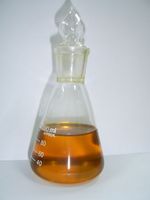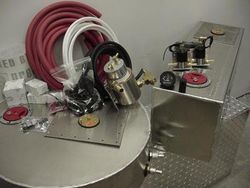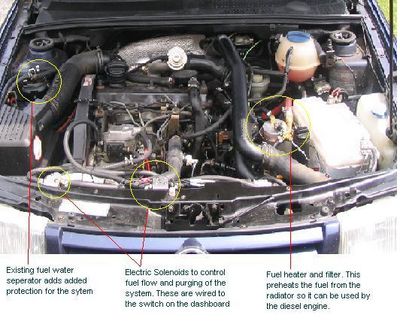.
BioDiesel: Difference between revisions
No edit summary |
No edit summary |
||
| Line 10: | Line 10: | ||
[[Image:Conversion Kit.jpg|thumb|left|250px|Typical Biodiesel Conversion kit]] | [[Image:Conversion Kit.jpg|thumb|left|250px|Typical Biodiesel Conversion kit]] | ||
[[Image:Vegi Oil Engine Bay.JPG|thumb|right|400px|Installed Conversion system on a 1997 Volkswagen Jetta]] | [[Image:Vegi Oil Engine Bay.JPG|thumb|right|400px|Installed Conversion system on a 1997 Volkswagen Jetta]] | ||
Revision as of 17:58, 19 July 2006
Biodiesel refers to a diesel-equivalent, processed fuel derived from biological sources. Though derived from biological sources, it's a processed fuel that can be readily used in diesel-engined vehicles, which distinguishes biodiesel from the straight vegetable oils (SVO) or waste vegetable oils (WVO) used as fuels in some modified diesel vehicles.
Converting modern diesel engines to run on vegetable oil has become popular in recent years and requires some kind of conversion system and is usually set up to be an auxiliary fuel.
These systems which are also known as "grease cars" typically use an alternate fuel tank, hoses, filters and electronics to run vegitable oil or other forms of "grease". The engine will run on normal diesel fuel until such time as the engine reaches normal operating temperature. The driver then turns the switch on inside the cockpit that enables the biodiesel fuel system. The biodiesel then replaces the regular diesel and fuels the engine itself. When shut off, the system is purged (either automatically or manually) and the system is then ready to be run on regular diesel fuel for the next start up.
Photos
External Links



